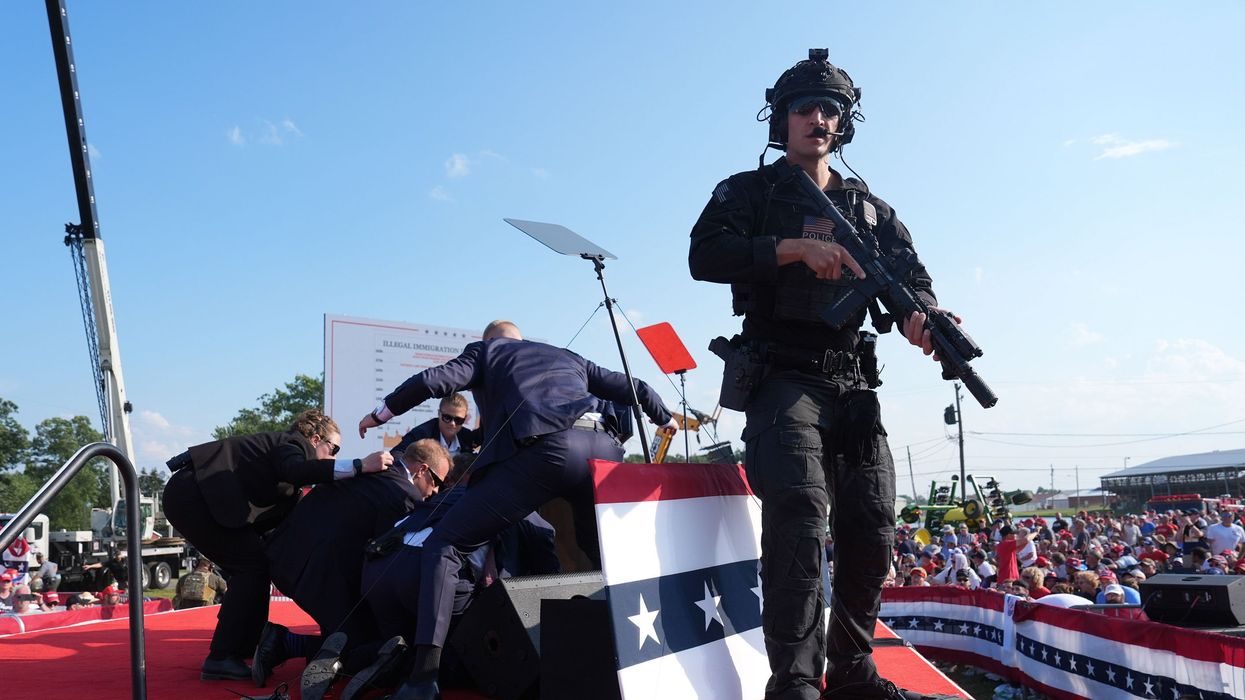Molineaux is the lead catalyst for American Future, a research project that discovers what Americans prefer for their personal future lives. The research informs community planners with grassroots community preferences. Previously, Molineaux was the president/CEO of The Bridge Alliance.
Whenever we or our loved ones are harmed, it is our human tendency to seek vengeance. Violence begets violence. Violent words lead to violent actions, as we’ve witnessed in the assassination attempt on former President Donald Trump.
The violence of the gunman is his alone.
Our response to violence is about us.
I confess that when I first heard the news, I experienced two seconds of satisfaction that Trump, the man who has used violent rhetoric, was reaping what he sowed. The next moment brought up dread that more violence would follow, blame would be cast upon President Joe Biden.
My third thought was more measured and reflective. What was my role in the increasing levels of societal violence? Others will quote polls about our willingness to use violence to achieve political aims. Others will quote statistics about gun access and gun violence. These statistics are conceptual tools to measure what individuals think about and care about most. Being statistics, most of us will exclude ourselves from the findings. We believe we are better than what the statistics show.
We should take a second look. What do we have the power to change? That would be ourselves.
We can let go of our initial responses to hearing the news about the attempted assassination, letting these thoughts pass through our system without attaching any meaning. They are our unfiltered and unconsidered thoughts. We can choose a more reasoned and humane thought that is actionable. Thoughts like:
- How am I increasingly open to violence?
- What have I posted on social media lately?
- How am I speaking with my friends who are deeply committed to their candidate?
Our self-image may be peace, diplomacy and compassion. We may have the self-image of a warrior, protecting others. We may consider ourselves “above the fray.” There are endless self-images we adopt.
Regardless of our chosen or unconscious self-image, we can practice acts of kindness towards others. It is a step towards non-violence that doesn’t threaten our self-image as peaceful people. It calls us towards more peaceful action. Kindness pulls us toward each other, as citizens.
When we squabble and fight amongst ourselves, we grow mean and harden our hearts to each other. Our tone grows sharp and biting. In these moments of stress, we are not peaceful or diplomatic or compassionate or protective or above the fray. We are RIGHT and they are WRONG.
This self-righteous response is low-level emotional violence. If allowed to remain, it will root deeply and present itself as arrogance and condescension towards others. Justified in violent words. If it grows, actions may follow.
Violence is a response to feeling powerless. During our never-ending campaigns, we citizens are told we have power, at the same time the campaign experts and PACs seek to manipulate us to do their bidding. Vote for “our chosen” candidate or don’t vote at all. Tactics of demoralization or obstacle building are rampant. So are get-out-the-vote efforts to overcome dissuasion tactics. We never quite know if what we think are our own thoughts. And we could never admit to being influenced by the campaigns at all, so these efforts go unaddressed.
Add in conflict profiteers, whose business is based on self-righteousness (they and their listeners are RIGHT!) with permission for violent rhetoric and it is inevitable that violent acts will follow. People who listen to conflict profiteers, be they mainstream media or YouTubers, slowly brainwash themselves into violence as acceptable action. Conflict profiteers are banking on us losing sight of our shared humanity.
Let us begin anew on a peaceful path. Commit to rooting out violence from yourself. It’s the only place to start.




















